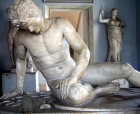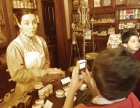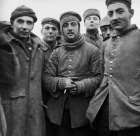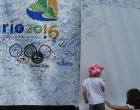Whole School
The effective history coordinator must work across the whole school, both in terms of inclusive, innovative curriculum development, enrichment, teaching and learning and resourcing as well as raising the profile of the subject across the whole school. The whole school aspect of the role may be in terms of history feeding into a whole school improvement or development plan, meeting the CPD requirements of teachers across the school, displays, assemblies or projects.
Sort by:
Date (Newest first) | Title A-Z
Show:
All |
Articles |
Podcasts |
Multipage Articles
-

A history of the world - 100 objects that tell a story
ArticleClick to view -

Assessment and Progression without levels
ArticleClick to view -

Case Study: Historical information and the local community
ArticleClick to view -

Creating the 'creative history' website
ArticleClick to view -

Curriculum planning: How to write a new scheme of work for history
ArticleClick to view -

Diogenes: Creativity and the Primary Curriculum
ArticleClick to view -

Early Islamic civilisation
ArticleClick to view -

Effective implementation in primary history
ArticleClick to view -

English Heritage's Heritage Explorer
ArticleClick to view -

From Home to the Front: World War I
ArticleClick to view -

Geosong: a transition project
ArticleClick to view -

History and the curriculum
ArticleClick to view -

History, ICT and the digital age
ArticleClick to view -

How a history club can work for you and your pupils
ArticleClick to view -

Ideas for Assemblies - Remembrance
ArticleClick to view -

Ideas for Assemblies: Anniversaries
ArticleClick to view -

Ideas for Assemblies: Battle of the Somme
ArticleClick to view -

Ideas for Assemblies: Empowering pupils to understand the First World War
ArticleClick to view -

Ideas for Assemblies: Lest we forget
ArticleClick to view -

Ideas for Assemblies: The Olympics
ArticleClick to view

